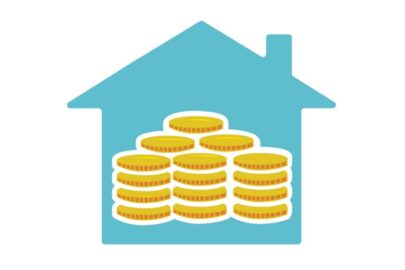The Nationwide Building Society has reported a slight increase in house price growth in June.
Prices were up 0.2% month on month.
Meanwhile, the annual change was 5.1%, up fro 4.7% in May.
The average price (not seasonally adjusted) of a home is now £204,968.
Robert Gardner, Nationwide’s chief economist, said: “The rate of annual UK house price growth has remained fairly stable over the past 12 months, confined to a fairly narrow range of between 3% and 6% – this trend was maintained in June with price growth at 5.1%, up slightly from the 4.7% recorded in May.
“It has become difficult to gauge the underlying pace of demand in recent months, due to the surge in house purchase activity in March ahead of the introduction of Stamp Duty on second homes on 1 April.
“It will therefore be difficult to assess how much of the likely fall back in transactions in the quarters ahead is because buyers brought forward purchases to avoid additional Stamp Duty liabilities, and how much is due to increased economic uncertainty following the referendum result. Gauging the likely impact on house prices will be even more difficult.
“Ultimately conditions in the housing market will be determined by conditions in the wider economy, especially the labour market. It is too early to assess the impact of the referendum vote on the economy. However, it is encouraging that the labour market had remained robust in recent months, with solid employment growth and the unemployment rate declining to an eleven-year low in April. Borrowing costs also remained close to historic lows.
“Moreover, the lack of homes on the market – with estate agents continuing to report a record low number of properties on their books – will also provide underlying support for prices even if demand softens.
“Regional house price trends also maintained the pattern prevailing in recent quarters, with southern areas of England recording the fastest rates of house price growth in Q2.”
The Outer Metropolitan region again had the strongest rate of annual price growth of 12.4% up from 12.2% in Q1. Despite a slowing in Q2, London was still the second strongest region with prices up 9.9% to a new all-time high, some 54% above pre-crisis levels (compared with 10% for overall UK house prices). The North of England was the only region to see house prices decline in Q2, and as a result replaced Northern Ireland as the UK’s least expensive region. Average prices in the North are currently 9% below their pre-crisis peak.
Gardner said: “It remains the case that the pace of house price growth tends to decline as you move from the south to the north of the country, even though prices in the south are already well above pre-crisis levels, while in Northern Ireland, Scotland, Wales and the North of England prices remain well below their 2007 highs.
“It remains unclear how long this pattern will persist, and whether the north-south divide in house price levels will continue to widen.
“The outlook for London is even more difficult to assess, because landlords and overseas buyers play a larger role in the market, and the outlook for demand from these sources is particularly uncertain. It is unclear how recent Stamp Duty changes and upcoming changes to the tax deductibility of landlords’ expenses will affect investor demand in the years ahead.
“Similarly, it is difficult to gauge how sentiment from overseas buyers will be impacted by increased economic uncertainty on the one hand and the sharp decline in sterling on the other (which, if sustained, reduces the cost of UK property in foreign currency terms).
“Property prices in the capital have been supported by extremely robust labour market conditions as well as strong investor demand in recent years. Employment is now over 17% higher than its pre-crisis peak, compared to 6% higher in the UK overall. How labour market conditions evolve will be key, though valuations in the capital are already stretched by historic standards – the price of a typical London property on our measure (£472,384) is 12 times average earnings in the capital.”
Ian Thomas, co-founder and director of LendInvest, said: “The vote to leave has come as a shock to many, but in our view, the fundamentals of the UK housing market won’t change abruptly – people still need homes to live in, whether we are in the EU or not, and the fact is that demand for housing massively outstrips supply.
“Brexit may create opportunities too. It could result in the housing market cooling and resetting in areas where house price growth has locked out first-time buyers and others that want to purchase property.”
